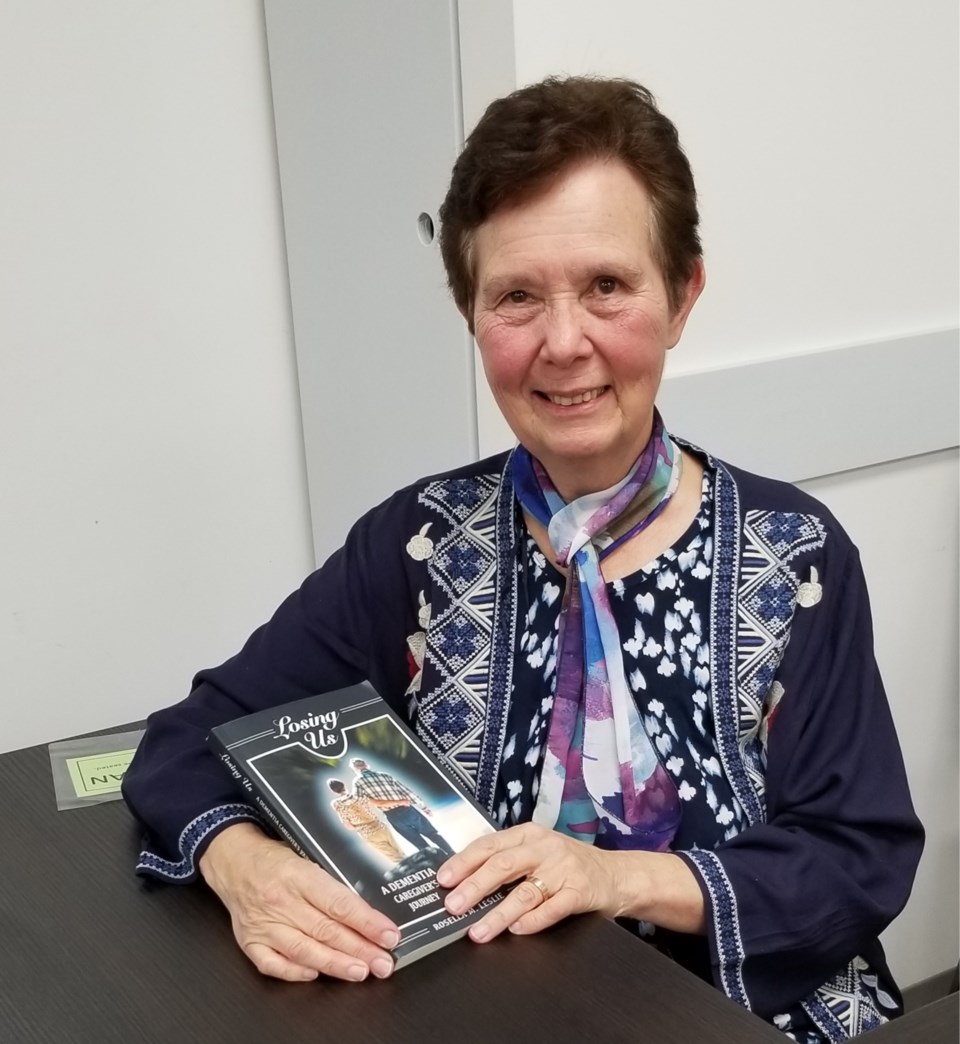What happens when the person who is your rock, your life partner, your beloved, can no longer drive or even catch the bus on his own, repeats himself and becomes angry and even physical for no reason?
How does one navigate becoming more of a caregiver than a lover to a spouse?
Who does a caregiver turn to when the person they would usually rely on to confide in, is now the one they need to sometimes escape from?
Rosella M. Leslie, an award-winning author of eight books, deftly delves into these situations and many more with beautiful and gut-wrenching honesty in her latest publication, Losing Us: A Dementia Caregiver's Journey about the 12 years she took care of her late husband, John, who developed dementia.
Through her experiences, Leslie has become an advocate for caregivers of persons with dementia.
She also gives presentations based on her book, including upcoming sessions at the Squamish Public Library on Oct. 17 at 7 p.m., at the Pemberton and District Library on Oct. 18 at 6 p.m, and at the Whistler Public Library on Oct. 19 at 6 p.m.
Sharing is caring
Leslie pulls no punches in talking about the mistakes she made—like waiting too long to reach out for help—but also offers hope for caregivers and those with dementia.
The book is peppered throughout with poems that are at times touching, uplifting and sob-inspiring.
There are also sections that make the reader laugh along the way.
Leslie shares resources and tips she learned "the hard way," such as not arguing with a partner with dementia but instead providing a distraction.
Something she talks about in her presentation is how even to navigate getting a loved one diagnosed in the first place.
"My husband didn't accept it because he didn't realize he had dementia,” she recalled.
“He didn't know that there was anything wrong because they forget, especially in the early stages," she said. "They don't really think they have a problem because they're not remembering the times that they forget or the times that they repeat the same story over and over and over again."
Her approach to convince her husband to get tested was to ask him to see the doctor for her.
"What I did was to say 'Could you do it for me?' and I got him on a day when he was having a memory issue and he was feeling upset and uncertain. And so I said, 'You know, there are some medications that can help you with this, I have been reading about it.’”
When the couple had discussed dementia in a general sense before John developed it, he had told her to never put him in a nursing home, Leslie recalled.
But in the end, that is what she had to do.
"It was the hardest thing in my life that I ever did. And yet, for him, it ended up better ...There are many things that are lacking in the care homes and that were sad about it, but he felt safer. He wasn't recognizing home as home. And he wasn't feeling safe—every day he was afraid. At the care home, he was surrounded by staff and nurses."
As a review by a retired caregiver on the back of Losing Us notes it is "not a book for the faint of heart," due to its unflinching honesty about things not often discussed, such as losing patience with a loved one, resenting the loss of one's self in the process of caregiving and how in such situations,our best selves are not always on display.
Leslie acknowledged it was a bit cringey for her to see her raw emotions laid out in the poem and words in the book, but also felt she had to include the good, bad and the ugly
"I thought people who are caregivers need to know that this isn't unusual. This is common, and they're not horrible people. They are wonderful people and the fact is that when this is over, they will go back to the person they were," she said. "They haven't become a horrible person, they're just reacting in a very human way to an impossible situation."
Ultimately, the tale of her journey reinforces that we are better when we share with each other. Leslie's book and presentation aims to make others feel less alone as their journey unfolds.
Find out more
Find Losing Us: A Dementia Caregiver's Journey on Leslie's website or in person at her library events.
Find out more about the Squamish presentation on the Squamish Public Library event page.
The Pemberton event can be found here, and the Whistler event here.




